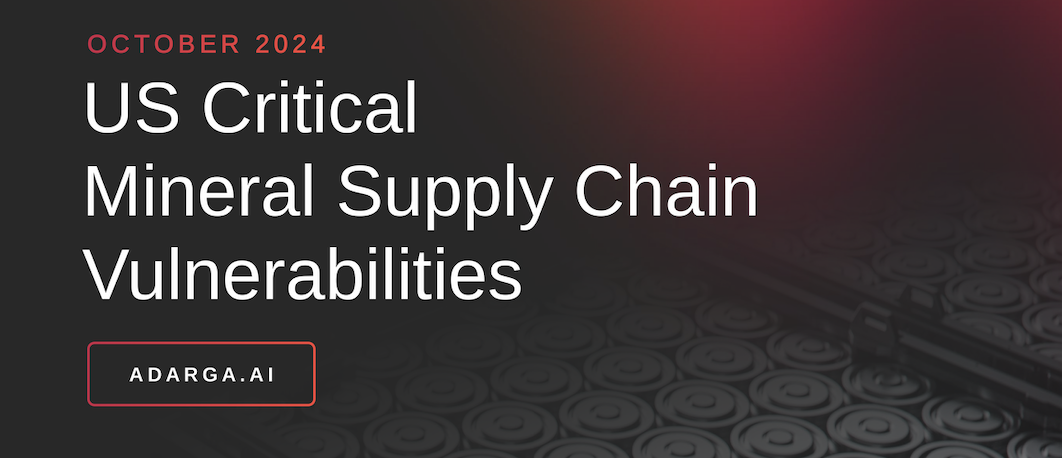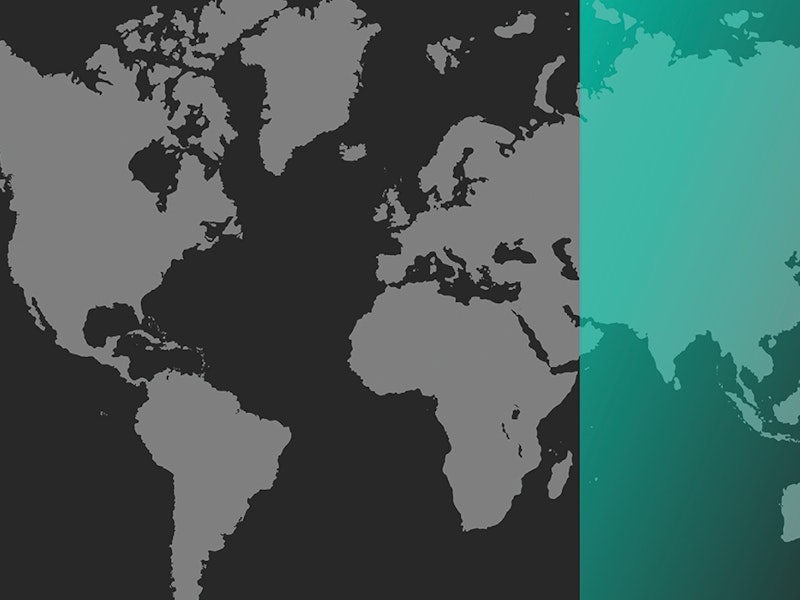Adarga delivers unmatched insight into supply chain risk with AI-driven approach
Adarga has developed an innovative AI-driven approach to understanding the geopolitical risks posed to global supply chains.
Adarga's Supply Chain Vulnerability Index (SCVI) is a methodology that leverages its proprietary data models on national influence to examine the exposure of supply chains to geopolitical disruption. Used in conjunction with its cutting-edge AI software, which is designed to enhance, augment and significantly accelerate data analysis, Adarga is delivering unparalleled insight to global organisations so they can develop better strategic and operational resilience.
“The SCVI brings together use-case led models, and powerful AI-driven research capabilities and know-how,” notes Sam Olsen, Adarga’s Vice President of Geopolitical Risk, adding “The use of our Vantage software enables us to increase the quality, speed, and breadth of our research and to derive insights from huge volumes of quantitative and qualitative data – including Adarga’s highly curated geopolitical data sets.”
“Supply chains are often the first thing to feel the effects of political tensions, economic sanctions, and other facets of geopolitical risk,” says Olsen, “Through the SCVI research methodology we can identify, measure, and analyse the impact of geopolitical disruption on any given supply chain. It gives planners, policy makers, and decision takers a better understanding of where dependencies and vulnerabilities exist, what is causing them, and which countries are involved.”
Using metrics based on supply chain exposure, diversification, and market share, and backed by Adarga’s breadth and depth of geopolitical expertise, the SCVI methodology measures and assesses the vulnerability of not only different types of supply chain, but also different components within them and from different perspectives. It enables specific upstream and downstream risks and vulnerabilities to be honed in on and assessed in greater depth, and can provide a broad picture across an entire supply chain.
The index features global and national vulnerability scores, both use a scale from 0.0 (least vulnerable to disruption) to 5.0 (most vulnerable to disruption).
To demonstrate the efficacy of the methodology, Adarga has analysed the geopolitical vulnerability of three critical minerals – cobalt, copper, and nickel – at the US national and global levels in a newly released report.
The analysis – captured in the US Critical Mineral Supply Chain Vulnerabilities report – was rooted in the concept of ally-shoring, the process by which countries rework critical supply chains so that they are held by trusted allies and partners (in this case, allies of the US).
“The analysis provides valuable insight for ally-shoring,” says Olsen, “By assessing vulnerabilities to disruption at the national and company level, as opposed to the traditional supply chain mapping focus on logistics chains, it presents a fuller picture of the geopolitical implications of supply chains. Moreover, it shows that ally-shoring by the US cannot solely rely on an understanding of its own supply chain vulnerabilities. This must be complemented by an understanding of allies and prospective partners’ vulnerabilities.”
The SCVI has already been used by a leading US think tank to explore vulnerabilities in the supply chain for key components in the automotive industry. Read more about the outcomes of the research here.
To download the US Critical Mineral Supply Chain Vulnerabilities report click here.












